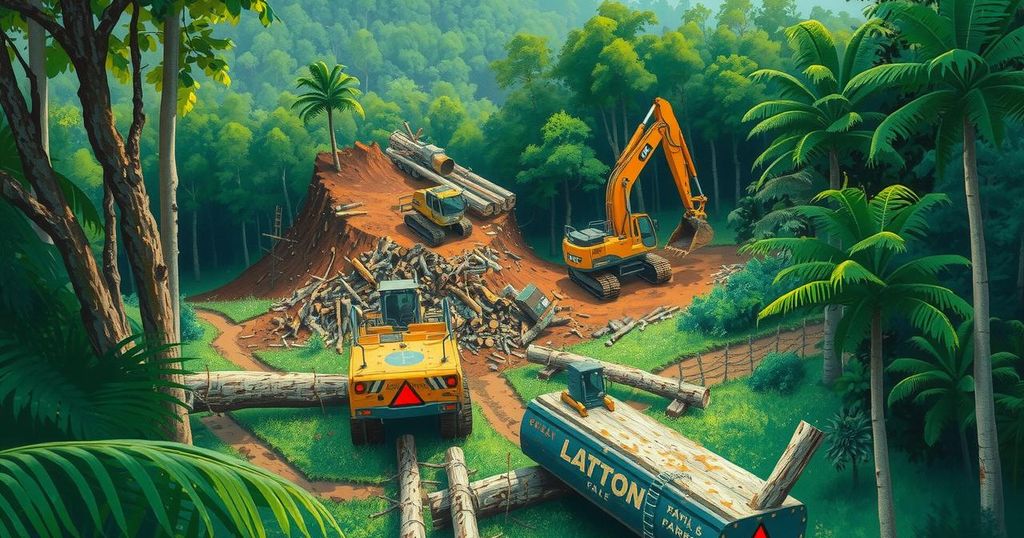The COP30 climate summit is scheduled for November in Belém, Brazil, prompting the construction of Avenida Liberdade, which will significantly impact the Amazon rainforest. While the Brazilian government asserts that the highway will include sustainability features, the destruction of the rainforest raises concerns about the commitment to environmental issues being discussed at the summit.
This November, the COP30 climate summit will convene in Belém, Brazil, where world leaders will address climate change and seek solutions to protect the environment. In preparation for this significant gathering, Brazil has initiated the construction of a new highway, Avenida Liberdade, which will cut directly through the Amazon rainforest to accommodate over 50,000 summit attendees. This situation raises questions about irony and hypocrisy, as the very action taken to facilitate climate discussions harms a crucial ecological resource.
The Avenida Liberdade project has been planned since 2012, yet faced delays related to environmental concerns. The Amazon rainforest, often referred to as “the lungs of the world,” is vital for global ecological health. Despite the acknowledged significance of the rainforest, Brazil has moved forward with plans to destroy large areas to ensure adequate infrastructure for the summit, demonstrating a troubling contradiction in their approach to climate policy.
Brazilian Infrastructure Secretary Adler Silveira has claimed that the new highway will incorporate sustainable features, such as wildlife crossings, bike lanes, and solar lighting. However, these initiatives do not compensate for the extensive deforestation required for construction. The government argues that the infrastructure projects, including the highway and a new city park, will modernize Belém, a city perceived by locals as neglected by its leadership.
In conclusion, the construction of Avenida Liberdade through the Amazon rainforest for the COP30 climate summit underscores a significant contradiction in Brazil’s environmental policies. While officials tout sustainability measures, the destruction of key ecological areas for infrastructure raises profound questions regarding the commitment to climate change discussions. This paradox highlights the ongoing challenges in addressing environmental concerns amidst developmental needs, showcasing the complexities of balancing economic growth with ecological preservation.
Original Source: www.vice.com






